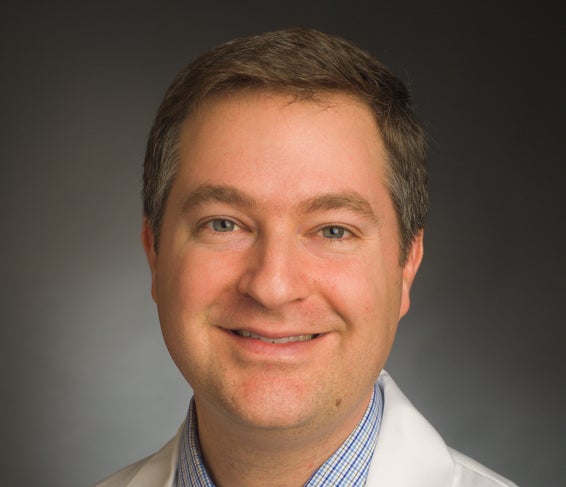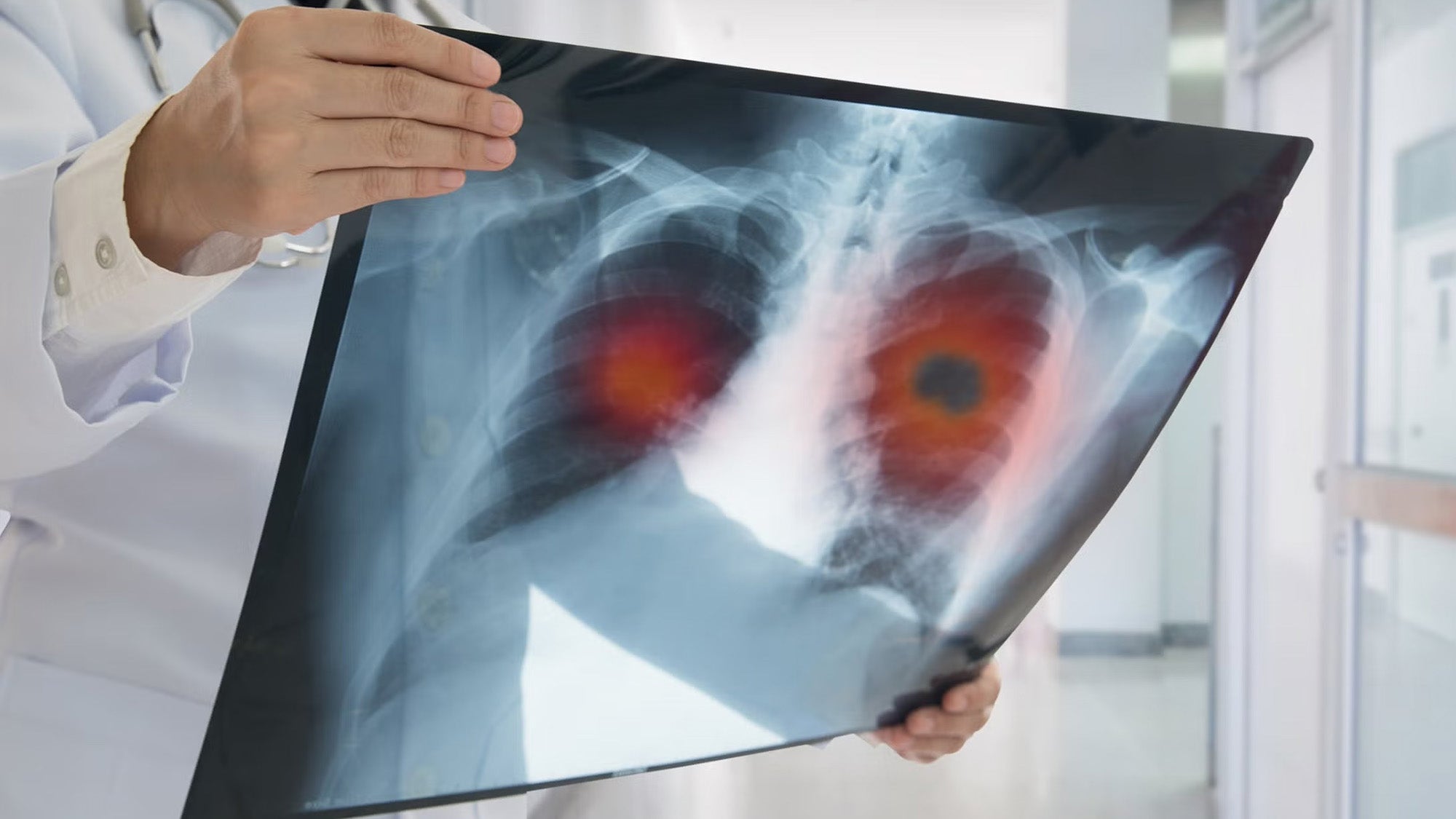Christiani Lab
The Christiani Lab studies the interplay between environmental exposures, genetics, and disease in human populations, in the research area known as molecular epidemiology.
651 Huntington Avenue
FXB 109–113
Boston, MA 02115
The Boston Lung Cancer Study (BLCS)
The Boston Lung Cancer Study (BLCS) is a cancer epidemiology cohort (CEC) of over 12,000 lung cancer cases enrolled at Massachusetts General Hospital (MGH) and Dana-Farber Cancer Institute (DFCI) since 1992. It has been supported by the National Cancer Institute (NCI). We have collected detailed demographic, smoking, occupational, and dietary information, in addition to pathology, imaging, treatments, oncogenic (somatic driver) mutation status, and biosamples. The BLCS biorepository includes serum, white blood cells, DNA, and ~2,000 tumor and surrounding tissues. This cohort is a member of the NCI-supported International Lung Cancer Consortium (ILCCO) and the Transdisciplinary Research in Cancer of the Lung on Lung Cancer (TRICL), and is one of the few lung CECs contributing data on survival status, with oncogenic mutation data and tissue available. The accumulative follow-up rate for the BLCS cohort has been high, approximately 95%, with nearly complete ascertainment of deaths using the National Death Index and other resources. MGH and DFCI are leaders in systematically genotyping patients for oncogenic mutations.
The BLCS is supported by NCI Award # 5U01CA209414
Research update for 2025
Despite the 6-month interruption in funding, we have had a very productive year in the BLCS, with 14 original publications focused on aspects of lung cancer survival, and a number of other papers that, along with colleagues in the International Lung Cancer Consortium, address other aspects of lung cancer risk, screening, and biomarkers.
Additionally, we have contributed to studies on lung cancer risk and screening.
The publication list can be reviewed here.
About the BLCS
- Retrieve pulmonary function and imaging for existing lung cases and prospectively identify new cases for COPD phenotyping.
- Conduct a pilot study of radiomics for lung cancer that will focus on building a bioinformatics pipeline to facilitate radiomic analysis in relation to outcomes and genetic data.
- Create a genome-wide/targeted methylation database for developing prognostic/predictive biomarkers of lunch cancer
- Apply Artificial Intelligence to images for clinical prediction
- Apply Natural Language Processing to electronic medical records/data retrieval
- Develop and apply novel methods of survival analysis
- Recruit new patients and continue follow-up of the BLCS cohort to update data on smoking, diet, physical activity, medication use, weight, other exposures, overall mortality, and other outcomes
- Continue to collect and update oncogenic (somatic driver) mutations for the BLCS cohort using existing clinical screening programs supported by existing DF/HCC mechanisms
- Maintain data management and quality control systems to maximize the value of the BLCS data for scientific analyses conducted by internal and external investigators
- Continue the identification, tracking, and ongoing utilization of FFPE tissue blocks for characterization.
- Expand a prospective dimension of the existing cohort. Prospective data and biosamples will be collected at regular follow-up of lung cancer patients, which will be valuable for studies in relation to treatment efficacy, toxicity, and survival, as well as ongoing characterization of relevant biomarkers.
2025 publications on Lung Cancer Survival:
1. Zhang T, Zhao W, Wirth C, Díaz-Gay M, Yin J, Cecati M, Marchegiani F, Hoang ,PH, Leduc C, Baine MK, Travis WD, Sholl LM, Joubert P, Sang J, McElderry JP, Klein A, Khandekar A, Hartman C, Rosenbaum J, Colón-Matos FJ, Miraftab M, Saha M, Lee OW, Jones KM, Caporaso NE, Wong MP, Leung KC, Agnes Hsiung C, Chen CY, Edell ES, Martínez Santamaría J, Schabath MB, Yendamuri SS, Manczuk M, Lissowska J, Świątkowska B, Mukeria A, Shangina O, Zaridze D, Holcatova I, Mates D, Milosavljevic S, Savic M, Bossé Y, Gould Rothberg BE, Christiani DC, Gaborieau V, Brennan P, Liu G, Hofman P, Homer R, Yang SR, Pesatori AC, Consonni D, Yang L, Zhu B, Shi J, Brown K, Rothman N, Chanock SJ, Alexandrov LB, Choi J, Cardelli M, Lan Q, Nowak MA, Wedge DC, Landi MT. Deciphering lung adenocarcinoma evolution and the role of LINE-1 retrotransposition. bioRxiv [Preprint]. 2025 Mar 16:2025.03.14.643063. doi: 10.1101/2025.03.14.643063. PMID: 40161734; PMCID:PMC11952568.
2. Lu G, Liu H, Wang H, Luo S, Du M, Christiani DC, Wei Q. Genetic variants of FER and SULF1 in the fibroblast-related genes are associated with non-small-cell lung cancer survival. Int J Cancer. 2025 Jun 1;156(11):2107-2117. doi: 10.1002/ijc.35305. Epub 2024 Dec 20. PMID: 39707607; PMCID: PMC11971011.
3. Wang H, Liu H, Tang X, Lu G, Luo S, Du M, Christiani DC, Wei Q. Potentially functional variants of PARK7 and DDR2 in ferroptosis-related genes predict survival of non-small cell lung cancer patients. Int J Cancer. 2025 Feb 15;156(4):744-755. doi: 10.1002/ijc.35197. Epub 2024 Sep 25. PMID: 39319523; PMCID: PMC11661923.
4. Saraf A, He J, Shin KY, Weiss J, Awad MM, Gainor J, Kann BH, Christiani DC, Aerts HJWL, Mak RH. Association of Sarcopenia With Toxicity and Survival in Patients With Lung Cancer, a Multi-Institutional Study With External Dataset Validation. Clin Lung Cancer. 2025 Jun;26(4):e249 e258.e10. doi: 10.1016/j.cllc.2025.01.010. Epub 2025 Jan 28. PMID: 39986945.
5. Wang X, Hata A, Wada N, Song J, Fukuda T, Nakamura Y, Nishino M, Li Y, Schiebler ML, Christiani DC, Hatabu H. AI-derived body composition analysis reveals muscle volume and metformin-associated adipose effects and the obesity paradox in non-small cell lung cancer. EBioMedicine. 2025 Nov;121:105995. doi:10.1016/j.ebiom.2025.105995. Epub 2025 Oct 29. PMID: 41166991; PMCID:PMC12613069.
6. Dong M, Thakral A, Byrne KS, Bosse Y, Zhou H, Zhang Y, Atkins J, Haycock P, Brown MC, Murison K, Timens W, Sin DD, Kothari J, Gabriel AAG, Zaridze D, Savic M, Lissowska J, Świątkowska B, Janout V, Holcatova I, Mukeria A, Fernandez-Tardon G, Davies MPA, Triplette M, Schabath MB, Andrew AS, Chen C, Taylor F, Field JK, Tardon A, Shete SS, Brennan P, Landi MT, McKay J, Amos CI, Lin X, Christiani DC, Hung RJ, Liu G, Xu W. Genome-wide association study of early-stage non-small cell lung cancer prognosis: a pooled analysis in the International Lung Cancer Consortium. Carcinogenesis. 2025 Apr 3;46(2):bgaf031. doi: 10.1093/carcin/bgaf031. PMID: 40746155.
7. Zhai T, Li Y, Brown R, Lanuti M, Gainor JF, Christiani DC. Residual Volume and Total Lung Capacity at Diagnosis Predict Overall Survival in Non-Small Cell Lung Cancer Patients. Cancer Med. 2025 May;14(10):e70962. doi:10.1002/cam4.70962. PMID: 40371871; PMCID: PMC12079642.
8. Kobus Z, Kobus M, Zhang EJ, Ghosh Biswas R, Chen J, Zhou JX, Rao A, Hollmann KS, Habbel P, Nowak J, Su L, Kaul DP, Arnold SE, Christiani DC, Cheng LL. Metabolomic Relationships Between Lung Cancer and Alzheimer’s Disease Using Serum Nuclear Magnetic Resonance Spectroscopy. NMR Biomed. 2026 Jan;39(1):e70186. doi: 10.1002/nbm.70186. PMID: 41321042.
9. Wang X, Ricciuti B, Elkrief A, Alessi JV, Di Federico A, Pecci F, Nishino M, Gulhan D, Ananda G, Rodig SJ, Sholl L, Johnson B, Lin X, Schoenfeld A, Awad MM, Christiani DC. Multi-omics analysis reveals differential benefits of immunotherapy±chemotherapy based on detailed smoking history in advanced non-small cell lung cancer. J Immunother Cancer. 2025 Dec 21;13(12):e012205. doi: 10.1136/jitc-2025-012205. PMID: 41423267; PMCID: PMC12719888.
10. Alvarez AAR, Sun Y, Li Y, Christiani DC. Effects of Sex on Mortality in Patients With Lung Cancer: A Multiple Mediation Analysis of The Boston Lung Cancer Study. Clin Lung Cancer. 2025 Sep 24:S1525-7304(25)00233-5. doi: 10.1016/j.cllc.2025.09.007. Epub ahead of print. PMID: 41130886.
11. Petrochuk J, Pai S, He J, Haugg F, Xu Y, Christiani D, Mak R, Aerts H. Foundation model based prediction of lung cancer survival using temporal changes in dual time point CT scans. Sci Rep. 2025 Dec 3;15(1):43042. doi: 10.1038/s41598-025-26365-7. PMID: 41339367; PMCID: PMC12675525.
12. Zhao W, Zhang T, Hua X, Hoang PH, Miraftab M, Saha M, McElderry JP, Sang J, Lee OW, Hartman C, Khandekar A, Sharma S, Colón-Matos FJ, Anyaso-Samuel S, Wang D, Jones K, Hutchinson A, Hicks B, Rosenbaum J, Zhong X, Yang Y, Pesatori AC, Consonni D, Christiani DC, Leung KC, Wong MP, Manczuk M, Lissowska J, Świątkowska B, Mukeria A, Shangina O, Zaridze D, Holcatova I, Mates D, Milosavljevic S, Ognjanovic S, Savic M, Kontic M, Gaborieau V, Brennan P, Arrieta O, Bossé Y, Edell ES, Schabath MB, Hofman P, Mas L, Yendamuri SS, Chen CY, Chang IS, Hsiung CA, Liu G, Martinez Santamaría J, Gould Rothberg BE, Mutreja K, Lawrence S, Rothman N, Alexandrov LB, Leduc C, Baine MK, Joubert P, Sholl LM, Travis WD, Homer R, Lan Q, Chanock SJ, Yang L, Yang SR, Shi J, Landi MT. A prognostic signature for lung adenocarcinoma in patients who have never smoked. Cancer Discov. 2025 Oct 30. doi: 10.1158/2159-8290.CD-25-0581. Epub ahead of print. PMID: 41165571.
13. McElderry JP, Zhang T, Zhao W, Hoang PH, Anyaso-Samuel S, Sang J, Khandekar A, Hartman C, Colón-Matos FJ, Miraftab M, Saha M, Lee O, Sharma S, Jones KM, Zhu B, Díaz-Gay M, Mas L, Rodriguez OGA, Edell ES, Santamaría JM, Schabath MB, Yendamuri S, Manczuk M, Lissowska J, Świątkowska B, Mukeria A, Shangina O, Zaridze D, Holcatova I, Janout V, Mates D, Ognjanovic S, Savic M, Kontic M, Bossé Y, Gould Rothberg BE, Christiani DC, Gaborieau V, Brennan P, Liu G, Hofman P, Wong MP, Leung KC, Chen CY, Hsiung CA, Rothman N, Leduc C, Baine MK, Travis WD, Sholl LM, Joubert P, Homer R, Yang SR, Lan Q, Nowak MA, Wedge DC, Alexandrov LB, Chanock SJ, Vogtmann E, Abnet CC, Shi J, Landi MT. Microbiome analysis of 940 lung cancers in never-smokers reveals lack of clinically relevant associations. Nat Commun. 2025 Dec 12. doi: 10.1038/s41467-025-66780-y. Epub ahead of print. PMID: 41387456.
14: Fan Q, Wang X, Wang Y, Xu X, Cao Q, Li Y, Zhao Y, Shao F, Jiang Q, Wang M, Liu Y, Christiani DC, Chen F, Huang L, Zhang R. SOTA: A statistical tool for quantifying the superiority onset time of PD-1/PD-L1 inhibitor response based on Kaplan-Meier graphics and its application in a meta-analysis of NSCLC randomized controlled trials. Chin Med J (Engl). 2025 Aug 25. Doi: 10.1097/CM9.0000000000003733. Epub ahead of print. PMID: 40851388.
Contribution to studies of lung cancer risk and screening:
1. You D, Wu Y, Lu M, Shao F, Tang Y, Liu S, Liu L, Zhou Z, Zhang R, Shen S, Lange T, Xu H, Ma H, Yin Y, Shen H, Chen F, Christiani DC, Jin G, Zhao Y. A genome-wide cross-trait analysis characterizes the shared genetic architecture between lung and gastrointestinal diseases. Nat Commun. 2025 Mar 28;16(1):3032. doi: 10.1038/s41467-025-58248-w. PMID: 40155373; PMCID: PMC11953465.
2. Díaz-Gay M, Zhang T, Hoang PH, Leduc C, Baine MK, Travis WD, Sholl LM, Joubert P, Khandekar A, Zhao W, Steele CD, Otlu B, Nandi SP, Vangara R, Bergstrom EN, Kazachkova M, Pich O, Swanton C, Hsiung CA, Chang IS, Wong MP, Leung KC, Sang J, McElderry JP, Hartman C, Colón-Matos FJ, Miraftab M, Saha M, Lee OW, Jones KM, Gallego-García P, Yang Y, Zhong X, Edell ES, Santamaría JM, Schabath MB, Yendamuri SS, Manczuk M, Lissowska J, Świątkowska B, Mukeria A, Shangina O, Zaridze D, Holcatova I, Mates D, Milosavljevic S, Kontic M, Bossé Y, Rothberg BEG, Christiani DC, Gaborieau V, Brennan P, Liu G, Hofman P, Yang L, Nowak MA, Shi J, Rothman N, Wedge DC, Homer R, Yang SR, Pesatori AC, Consonni D, Lan Q, Zhu B, Chanock SJ, Choi J, Alexandrov LB, Landi MT. The mutagenic forces shaping the genomes of lung cancer in never smokers. Nature. 2025 Aug;644(8075):133-144. doi: 10.1038/s41586-025-09219-0. Epub 2025 Jul 2. PMID: 40604281; PMCID: PMC12667038.
3. Ye Z, Sun Y, Yin Y, Liu L, Cui M, Zhang L, Hao Y, Christiani DC, Lin H, Shen P, Wei Y. Assessment and recalibration of seventeen lung cancer risk prediction models in approximately one million Chinese population utilising healthcare big data: a retrospective cohort analysis. Lancet Reg Health West Pac. 2025 May 16;58:101575. doi: 10.1016/j.lanwpc.2025.101575. PMID: 40487264; PMCID: PMC12143837.
4. Rosenberger A, Bickeböller H, Christiani DC, Caporaso NE, Liu G, Bojesen SE, Le Marchand L, Albanes D, Aldrich MC, Tardon A, Fernández-Tardón G, Rennert G, Field JK, Davies MPA, Kiemeney LA, Lazarus P, Zienolddiny S, Lam S, Schabath MB, Andrew AS, Arnold SM, Goodman GE, Doherty JA, Taylor F, Cox A, Woll PJ, Risch A, Johansson M, Brennan P, Landi MT, Shete SS, Hung RJ, Amos CI; INTEGRAL-ILCCO Consortium. Genes associated with genetic and rare lung diseases and the risk of lung cancer. Res Sq [Preprint]. 2025 Aug 11:rs.3.rs-7029929. doi: 10.21203/rs.3.rs-7029929/v1. PMID: 40831500; PMCID: PMC12363919.
5. Zhang T, Zhao W, Wirth C, Díaz-Gay M, Yin J, Cecati M, Marchegiani F, Hoang PH, Leduc C, Baine MK, Travis WD, Sholl LM, Joubert P, Sang J, McElderry JP, Klein A, Khandekar A, Hartman C, Rosenbaum J, Colón-Matos FJ, Miraftab M, Saha M, Lee OW, Jones KM, Caporaso NE, Wong MP, Leung KC, Agnes Hsiung C, Chen CY, Edell ES, Martínez Santamaría J, Schabath MB, Yendamuri SS, Manczuk M, Lissowska J, Świątkowska B, Mukeria A, Shangina O, Zaridze D, Holcatova I, Mates D, Milosavljevic S, Savic M, Bossé Y, Gould Rothberg BE, Christiani DC, Gaborieau V, Brennan P, Liu G, Hofman P, Homer R, Yang SR, Pesatori AC, Consonni D, Yang L, Zhu B, Shi J, Brown K, Rothman N, Chanock SJ, Alexandrov LB, Choi J, Cardelli M, Lan Q, Nowak MA, Wedge DC, Landi MT. Deciphering lung adenocarcinoma evolution and the role of LINE-1 retrotransposition. bioRxiv [Preprint]. 2025 Mar 16:2025.03.14.643063. doi: 10.1101/2025.03.14.643063. PMID: 40161734; PMCID: PMC11952568.
6. Zhang L, Wang X, Chen Q, Zhao M, Ju C, Christiani DC, Chen F, Zhang R, Wei Y. Lung cancer risk assessment by prediction model: a global perspective. Thorax. 2025 Nov 14;80(12):890-899. doi: 10.1136/thorax-2023-221253. PMID: 40425295; PMCID: PMC12703260.
7. Byun J, Han Y, Choi J, Sun R, Shaw VR, Zhu C, Xiao X, Lusk C, Badr H, Lee HS, Jang HJ, Li Y, Lim H, Long E, Liu Y, Kachuri L, Walsh KM, Wiencke JK, Albanes D, Lam S, Tardon A, Neuhouser ML, Barnett MJ, Chen C, Bojesen S, Brenner H, Landi MT, Johansson M, Risch A, Wichmann HE, Bickeböller H, Christiani DC, Rennert G, Arnold S, Field JK, Shete S, Le Marchand L, Liu G, Andrew AS, Zienolddiny S, Grankvist K, Johansson M, Caporaso N, Taylor F, Lazarus P, Schabath MB, Aldrich MC, Patel A, Lin X, Zanetti KA, Harris CC, Chanock S, McKay J, Schwartz AG, Hung RJ, Amos CI; INTEGRAL-ILCCO Consortium. Genome-wide association study for lung cancer in 6531 African Americans reveals new susceptibility loci. Hum Mol Genet. 2025 Jul 3;34(14):1227-1237. doi: 10.1093/hmg/ddaf059. PMID: 40341939; PMCID: PMC12407114.
8. Yang Y, Zhong X, Phillips W, Zhao W, Hoang PH, Wirth C, Yang SR, Leduc C, Baine MK, Travis WD, Sholl LM, Joubert P, Homer R, Sang J, Khandekar A, McElderry JP, Tran TV, Hartman C, Miraftab M, Saha M, Lee OW, Sharma S, Jones KM, Zhu B, Díaz-Gay M, Edell ES, Santamaría JM, Schabath MB, Yendamuri SS, Manczuk M, Lissowska J, Świątkowska B, Mukeria A, Shangina O, Zaridze D, Holcatova I, Janout V, Mates D, Ognjanovic S, Savic M, Kontic M, Bossé Y, Rothberg BEG, Christiani DC, Gaborieau V, Brennan P, Liu G, Hofman P, Wong MP, Leung KC, Chen CY, Hsiung CA, Pesatori AC, Consonni D, Rothman N, Lan Q, Nowak MA, Wedge DC, Alexandrov LB, Chanock SJ, Shi J, Zhang T, Yang L, Landi MT. Panorama of Chromosomal Instability in Lung Cancer. medRxiv [Preprint]. 2025 Sep 12:2025.09.09.25335109. doi: 10.1101/2025.09.09.25335109. PMID: 41018008; PMCID: PMC12466783.
9. Wang X, Wang X, Zhao M, Lin L, Li Y, Xie N, Wang Y, Wang A, Xu X, Ju C, Chen Q, Chen J, Hou R, Zhang Z, Christiani DC, Chen F, Wei Y, Zhang R. Bidirectional Mendelian randomization and mediation analysis of million-scale data reveal causal relationships between thyroid-related phenotypes, smoking, and lung cancer. J Biomed Res. 2025 Mar 10;39(5):441-451. doi: 10.7555/JBR.38.20240421. PMID: 40065519; PMCID: PMC12481675.
10. Potter AL, Guo Q, Srinivasan D, Yang ME, McCarthy M, Wang D, Kothari J, Shafer A, Christiani DC, Jeffrey Yang CF. Assessing Lung Cancer Screening Eligibility of Patients With Lung Cancer in the Boston Lung Cancer Study: An Analysis of 7186 Lung Cancer Cases. Ann Thorac Surg. 2025 Apr;119(4):768-776. doi: 10.1016/j.athoracsur.2025.01.003. Epub 2025 Jan 24. PMID: 39864777.
11. Kobus Z, Kobus M, Zhang EJ, Ghosh Biswas R, Chen J, Zhou JX, Rao A, Hollmann KS, Habbel P, Nowak J, Su L, Kaul DP, Arnold SE, Christiani DC, Cheng LL. Metabolomic Relationships Between Lung Cancer and Alzheimer’s Disease Using Serum Nuclear Magnetic Resonance Spectroscopy. NMR Biomed. 2026 Jan;39(1):e70186. doi: 10.1002/nbm.70186. PMID: 41321042.
12. Kuperberg SJ, Christiani DC. Artificial Intelligence-Based Methods: The Path Forward in Achieving Equity in Lung Cancer Screening and Evaluation. Cancer Innov. 2025 Jun 20;4(4):e70019. doi: 10.1002/cai2.70019. PMID: 40547595; PMCID:PMC12179435.
13. Blechter B, Wang X, Dai J, Karsonaki C, Shi J, Shiraishi K, Choi J, Matsuo K, Chen TY, Hung RJ, Chen K, Shu XO, Kim YT, Choudhury PP, Williams J, Landi MT, Lin D, Zheng W, Yin Z, Zhou B, Wang J, Seow WJ, Song L, Chang IS, Hu W, Chien LH, Cai Q, Hong YC, Kim HN, Wu YL, Wong MP, Richardson BD, Li S, Zhang T, Breeze C, Wang Z, Bassig BA, Kim JH, Albanes D, Wong Sm JY, Shin MH, Chung LP, Yang Y, Zheng H, Dai H, Yatabe Y, Zhang XC, Kim YC, Caporaso NE, Chang J, Ho JCM, Daigo Y, Momozawa Y, Kamatani Y, Kobayashi M, Okubo K, Honda T, Hosgood HD, Kunitoh H, Watanabe SI, Miyagi Y, Matsumoto S, Horinouchi H, Tsuboi M, Hamamoto R, Goto K, Takahashi A, Goto A, Minamiya Y, Hara M, Nishida Y, Takeuchi K, Wakai K, Matsuda K, Murakami Y, Shimizu K, Suzuki H, Saito M, Ohtaki Y, Tanaka K, Wu T, Wei F, Machiela MJ, Kim YH, Oh IJ, Lee VHF, Chang GC, Chen KY, Su WC, Chen YM, Seow A, Park JY, Kweon SS, Gao YT, Liu J, Schwartz AG, Houlston R, Gorlov IP, Wu X, Yang P, Lam S, Tardon A, Chen C, Bojesen SE, Johansson M, Risch A, Bickeböller H, Ji BT, Wichmann HE, Christiani DC, Rennert G, Arnold SM, Brennan P, McKay J, Field JK, Davies MPA, Shete SS, Le Marchand L, Liu G, Andrew AS, Kiemeney LA, Zienolddiny-Narui S, Grankvist K, Cox A, Taylor F, Yuan JM, Lazarus P, Schabath MB, Aldrich MC, Jeon HS, Jiang SS, Chen CH, Hsiao CF, Hu Z, Burdett L, Yeager M, Hutchinson A, Hicks B, Liu J, Berndt SI, Wu W, Wang J, Li Y, Choi JE, Park KH, Sung SW, Kang CH, Wang WC, Xu J, Guan P, Tan W, Yu CJ, Yang G, Sihoe ADL, Choi YY, Park IK, Hung HH, Vermeulen RCH, Cheng I, Wu J, Tsai FY, Chan JKC, Li J, Lin HC, Liu J, Song B, Sawada N, Yamaji T, Wyatt K, Ma H, Zhu M, Wang Y, Qi T, Li X, Ren Y, Chao A, Iwasaki M, Zhu J, Wu G, Chen CY, ScD CC, Yang PC, Stevens VL, Fraumeni JF Jr, Lin K, Walters RG, Chen Z, Chatterjee N, Gorlova OY, Amos CI, Shen H, Hsiung CA, Chanock SJ, Rothman N, Kohno T, Lan Q, Zhang H. Stratifying lung adenocarcinoma risk with multi-ancestry polygenic risk scores in East Asian never-smokers. J Natl Cancer Inst. 2025 Oct 1:djaf272. doi: 10.1093/jnci/djaf272. Epub ahead of print. PMID: 41032288.
14. Li X, Yuan EY, Kuperberg SJ, Bonzel CL, Jeffway MI, Cai T, Liao KP, Aguiar-Ibáñez R, Kao YH, Santorelli ML, Christiani DC, Cai T, Duan R. Early detection of non-small cell lung cancer: an electronic health record data-driven approach. BMC Med. 2025 Oct 10;23(1):551. doi: 10.1186/s12916-025-04289-3. PMID: 41074123;PMCID: PMC12512953.
15. Zhang T, Zhao W, Wirth C, Díaz-Gay M, Yin J, Cecati M, Marchegiani F, Hoang PH, Leduc C, Baine MK, Travis WD, Sholl LM, Joubert P, Sang J, McElderry JP, Antony M, Klein A, Khandekar A, Hartman C, Rosenbaum J, Colón-Matos FJ, Miraftab M, Saha M, Lee OW, Jones KM, Caporaso NE, Wong MP, Leung KC, Hsiung CA, Chen CY, Edell ES, Santamaría JM, Schabath MB, Yendamuri SS, Manczuk M, Lissowska J, Świątkowska B, Mukeria A, Shangina O, Zaridze D, Holcatova I, Mates D, Milosavljevic S, Savic M, Bossé Y, Rothberg BEG, Christiani DC, Gaborieau V, Brennan P, Liu G, Hofman P, Homer R, Yang SR, Pesatori AC, Consonni D, Yang L, Zhu B, Shi J, Brown K, Rothman N, Chanock SJ, Alexandrov LB, Choi J, Cardelli M, Lan Q, Nowak MA, Wedge DC, Landi MT. Uncovering the role of LINE-1 in the evolution of lung adenocarcinoma. Nature. 2025 Dec 10. doi: 10.1038/s41586-025-09825-y. Epub ahead of print. PMID: 41372401.
16. Alwadi Y, Evans JS, Schwartz J, Vieira CLZ, Christiani DC, Coull BA, Koutrakis P. Residential proximity to nuclear power plants and cancer incidence in Massachusetts, USA (2000-2018). Environ Health. 2025 Dec 18;24(1):92. doi: 10.1186/s12940-025-01248-6. PMID: 41408632; PMCID: PMC12713251.
17. Liu Y, Li Y, Byun J, Shaw VR, Pikielny C, Peng B, Cheng C, Tsavachidis S, Xiao X, Zhu D, Han Y, Gorlov IP, Gorlova OY, Cole M, Gaba CR, Crawford EL, Purrington K, Goode EL, Yang P, McKay J, Field JK, Liu G, Hung RJ, Xia J, Choi J, Schabath MB, LoPiccolo J, Christiani DC, Bailey-Wilson J, Schwartz AG, Willey JC, Mandal D, Pinney SM, Amos CI. High penetrance rare variants underlying familial lung cancer risk: Insights from genetic epidemiology of lung cancer consortium. J Thorac Oncol. 2025 Dec 11:S1556-0864(25)02942-9. doi: 10.1016/j.jtho.2025.12.004. Epub ahead of print. PMID: 41390056.
18. LoPiccolo J, Tramontano AC, Florez N, Johnson BE, Gusev A, Christiani DC, Jänne PA. Patterns of lung cancer incidence in adults diagnosed under age 50 in the United States, 2000-2021. Cancer. 2026 Jan 1;132(1):e70217. doi: 10.1002/cncr.70217. PMID: 41442233.
19. Chen J, Rao A, Ghosh Biswas R, Zhang EJ, Zhou JX, Zhang E, Kobus Z, Kobus M, Su L, Christiani DC, Wishart DS, Cheng LL. Automatic Identification of Potential Cellular Metabolites for Untargeted NMR Metabolomics. NMR Biomed. 2025 Oct;38(10):e70131. doi: 10.1002/nbm.70131. PMID: 40887896; PMCID: PMC12445015.
20: Chitta P, Barrow TM, Dawangpa A, Christiani DC, Poungvarin N, Sae-Lee C. Blood-based biomarkers derived from tumor-informed DNA methylation analysis for lung adenocarcinoma. Heliyon. 2025 Feb 11;11(4):e42581. doi: 10.1016/j.heliyon.2025.e42581. PMID: 40034277; PMCID: PMC11874551.
21: Dai J, Zhang Y, Gao Y, Li H, Du S, Hong H, You D, Li Z, Zhang R, Zhao Y, Liu Z, Christiani DC, Chen F, Shen S. Boosting the Power of Rare Variant Association Studies by Imputation Using Large-scale Sequencing Population. Genomics Proteomics Bioinformatics. 2025 Sep 17:qzaf084. doi: 10.1093/gpbjnl/qzaf084. Epub ahead of print. PMID: 40973091.
Requests for data sharing are submitted to the Cancer Epidemiology Cohorts (CEC) PI Dr. David Christiani. Information required for data requests including specific goals, planned analyses, data access, and a statement acknowledging that the data shall be used only for non-proprietary research purposes.
Resource including human tissue sharing request will be reviewed by the Steering Committee. The object of these reviews is to speed exchange of material and information. Requests from CEC investigators will be given high priority, followed by other investigators at Harvard or the DF/HCC and the cancer research community at large.
Please fill out this form to request data, or email David Christiani for more information.
BLCS Team
Co-Investigators

Hugo Aerts, PhD, is Assistant Professor of Radiation Oncology at HMS and DFCI/BWH and Director, Computational Imaging and Bioinformatics Laboratory, DFCI. He is a pioneer in the area of Radiomics, combining computational biology techniques with image analysis to improve precision in the use on radiation in lung cancer.

David A. Barbie, MD, is an Associate Professor of Medicine at Harvard Medical School and the Lowe Center for Thoracic Oncology, and Associate Director of the Robert and Renée Belfer Center for Applied Cancer Science at the Dana-Farber Cancer Institute. He obtained an AB from Harvard College in 1997 and MD from Harvard Medical School in 2002. He is a key opinion leader in the emerging field of innate antitumor immunity. He promotes a collaborative and open research environment with a diverse group of clinicians and scientists including biologists, biochemists, immunologists, engineers, pathologists and oncologists from around the world.
Hiroto Hatabu, MD, PhD, is Professor of Radiology, BWH and HMS, Medical Director of Center for Pulmonary functional imaging (CPFI) and Clinical Director of the MRI Program at BWH. Dr. Hatabu is also a practicing chest radiologist and has significant research experience in lung cancer imaging for diagnosis and treatment response. In the course of the development of Center for Pulmonary Functional Imaging and Image-based Phenotyping, Dr. Hatabu has instituted the system infrastructure with PC-based workstations to handle 10,000 to 30,000 CT scans with 20 TB hard disc memory. Collaborating with Drs. Christiani, Johnson, Mak, and Nishino, Dr. Hatabu will contribute expertise toward the continued development of infrastructure to collect and analyze imaging data in the BLCS cohort comprising more than 10,000 cases.

John Iafrate, MD, PhD, is the director of the Center for Integrated Diagnostics, a clinical laboratory for molecular diagnostics at the MGH. He oversees the Translational Research Laboratory (TRL), a shared effort of the Pathology Department and Mass General Cancer Center. The TRL provides rapid personalized genomic testing to help inform cancer treatment decisions for patients. Dr. Iafrate received his MD and PhD from the State University of New York at Stony Brook in 2000, and was trained in anatomic and molecular genetic pathology at the BWH. He joined the MGH staff in 2005. His post-doctoral work involved the discovery and description of a novel source of human genetic diversity, CNV. He established a cancer diagnostics lab focusing on genetic fingerprints that help guide novel, targeted therapies. His laboratory launched SNaPshot several years ago, an assay that tests over 100 of the most common mutations in tumors. His research is focused on lung and brain tumors, and he has been closely involved in the clinical development of crizotinib and companion diagnostics in ALK-positive and ROS1-positive lung cancers.
Michael Lanuti, MD, is a board certified Thoracic Surgeon with special interest in lung cancer research, new techniques for lung cancer staging, and minimally invasive lung surgery.
Yi Li, PhD, MS, is a Professor of Biostatistics at the University of Michigan. His expertise is in developing new methods for survival analysis. His current research interests are survival analysis, longitudinal and correlated data analysis, measurement error problems, spatial models and clinical trial designs. His group is developing methodologies for analyzing large-scale and high-dimensional datasets, with direct applications in observational studies as well in genetics/genomics.
Dr. Xihong Lin is the Henry Pickering Walcott Professor of Biostatistics, Chair, Department of Biostatistics, HSPH. Dr. Lin is a leading expert in statistical genetics and genomics and statistical methods for epidemiological data and massive data. Dr. Lin’s research interests lie in the development and application of statistical and computational methods for 1) analysis of massive genetic and genomic data in population and medical science; and 2) analysis of complex and big data in observational and clinical studies, especially in cancer research. She is widely recognized for her contributions in these areas in both (bio)statistical and genetic epidemiology communities, particularly for her work in longitudinal data analysis, kernel machine methods, and statistical genetics and genomics. She has been closely collaborating with epidemiologists, clinical scientists and biologists in lung, breast, prostate, and NPC cancers, and has made several important discoveries in cancer etiology, biology, and medicine. Dr. Lin has published over 230 papers, many in leading statistics, genetics, and health science journals. She is the senior author on many methods papers and the leading statistician on many substantive papers.
Raymond Mak, MD, is Assistant Professor of Radiation Oncology, BWH/DFCI/HMS. Dr. Mak is a radiation oncologist specializing in the treatment of patients with lung cancer, and will provide expertise in designing clinical outcomes research in early stage (I-III) lung cancer, utilizing nested cohorts within the BLCS cohort, and collected tumor genotype/phenotype data. He will also provide experience in re-purposing genomic, imaging and clinical datasets from within the BLCS cohort to study treatment-related outcomes and toxicity in early-stage lung cancer. He will oversee patient accrual, clinical data collection, and bio-specimen collection from this site. He will collaborate with Drs. Aerts, Hatabu, and Nishino to generate an imaging database and quantitative imaging analysis pipeline.
Lynette Sholl, MD, is an Assistant Professor of Pathology at HMS/DFCI/BWH. Her research focuses on identifying pathologic, immunohistochemical, and genetic markers that will improve the classification of lung cancer, provide predictive information regarding therapy, and provide more precise prognostic information. With the advent of high-throughput next-generation sequencing technologies, she is engaged in translation of novel observations surrounding tumors.
Henning Willers, MD, is an Associate Professor of Radiation Oncology at HMS and MGH. He has researched in radiation biology since 1991 and as a laboratory-based PI since 2005. His basic and translational research activities are directed at furthering our understanding of how NSCLCs respond to radiation and radiosensitizing drugs. Specifically, we seek to identify the signaling pathways that contribute to the radioresistance of KRAS-mutant lung adenocarcinoma which is an emerging clinical problem.



